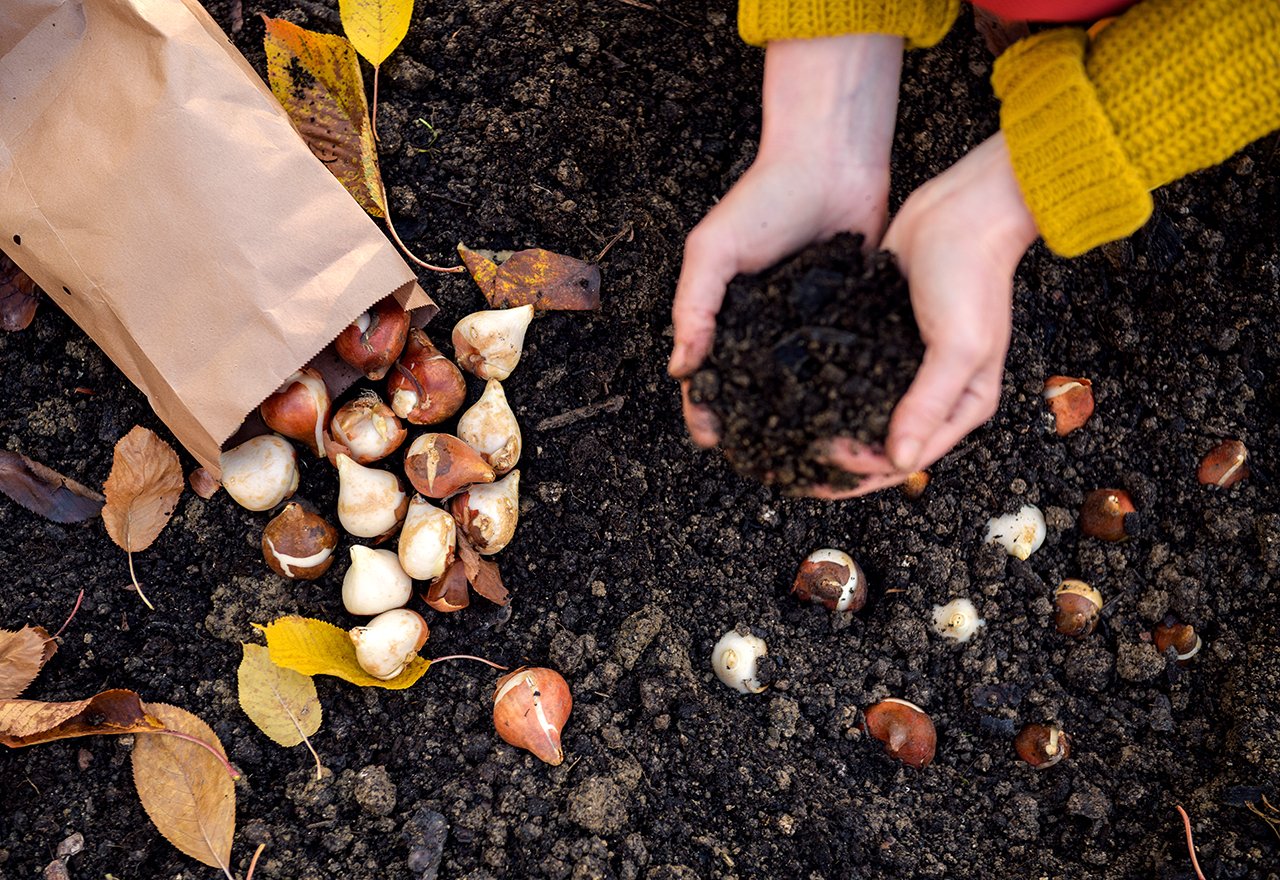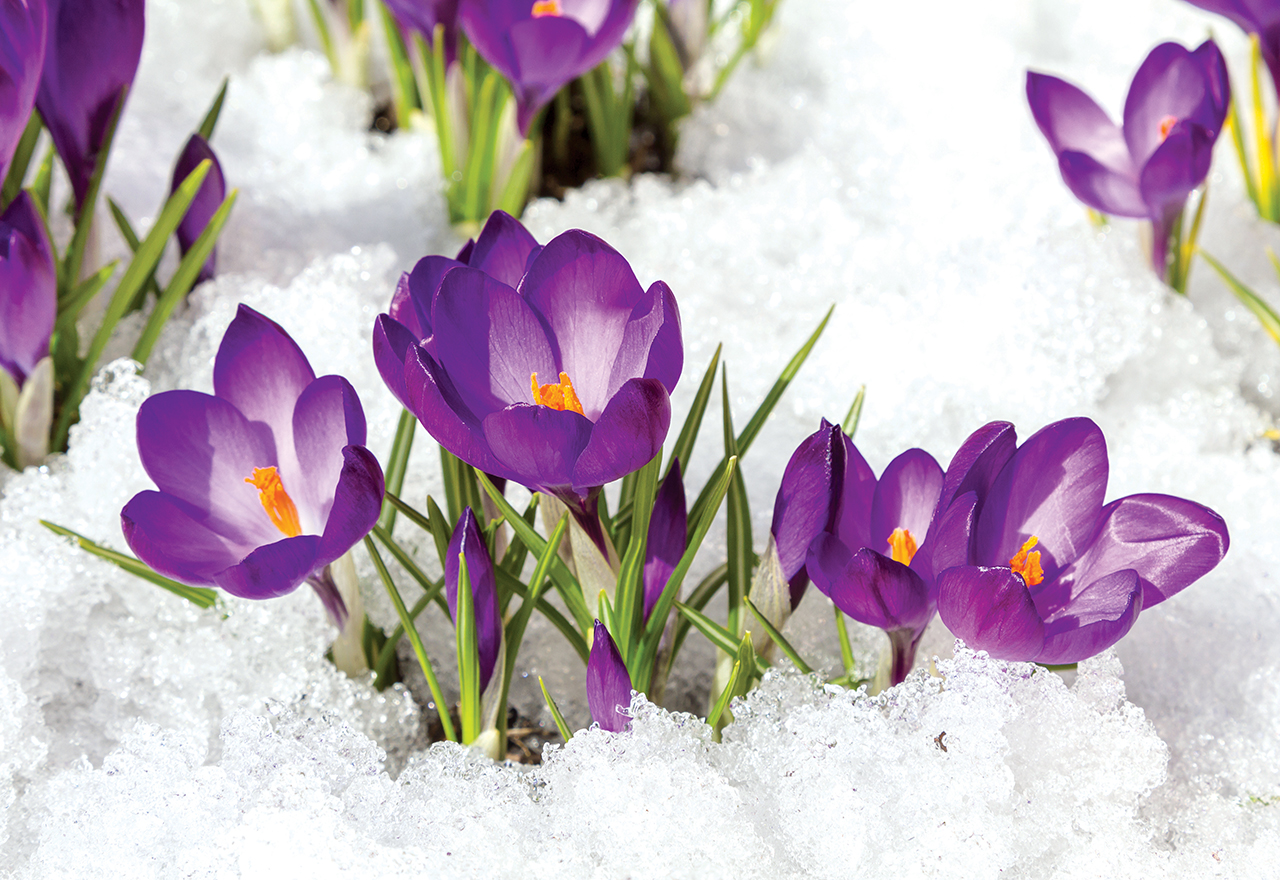Are My Spring Bulbs Growing Foliage Too Early?
by Maureen Wise, on March 3, 2023

Many of us planted bulbs in the Fall – either last Fall or years in the past – to enjoy Spring daffodils, tulips, crocuses, hyacinths, allium, and more. Planting bulbs in your garden takes some commitment and investment in the future. Bulbs don’t give us instant gratification like annual blooms. We have to wait for them to emerge in the Spring, months after we’ve planted them.
In late Winter and into early Spring, these flower bulbs start poking their foliage up out of the ground. Indeed, crocuses, snowbells, lenten rose, and winter aconite bloom the earliest, even when snow is still on the ground.
Bulbs start to grow foliage long before their flowers bloom. If one Spring sees warmer temperatures and less persistent snowfall, bulb foliage might surface from the mulch and leaves earlier than in other Springs. Additionally, bulbs planted in south-facing gardens or near large windows or water bodies that reflect onto the garden will grow their greenery earlier than others in the same region. Many people worry that their Spring bulbs are emerging too early and will become damaged with cold weather.

Snow or cold temperatures will not kill Spring bulbs. Foliage that emerges from the ground early may be smashed a bit by snow or turn yellow from a cold snap but the bulb itself is very unlikely to get damaged. The greenery may not look as pretty later in the Spring, but flowers will still bloom. And the fact that the leaves started to grow early does not mean that the blooms will, too. If flower buds grow and get frozen, their flowers are unlikely to bloom - the buds will just fall to the ground. The bulb may produce more flowers later in the season if this happens. Even if flowers themselves are damaged by a late cold snap, the bulb may still flower again that season later as well. Unless the bulb itself is damaged, it will continue to come back every Spring, producing the flowers you invested in for the future. Ensure that your bulbs are deep enough under the soil and mulch and they will continue to bring the flowers you want. Every three to four years it’s a good idea to separate bulbs that have reproduced and dig the bulbs well into the soil. Spread your bulbs throughout your garden and share them with your gardening friends.
Spring bulbs remind us that Summer is coming and bring a bit of color and hope at the end of the Winter. Bulbs have evolved over the years to care for themselves for the most part. We don’t need to worry about cold temperatures or snow damaging them.











